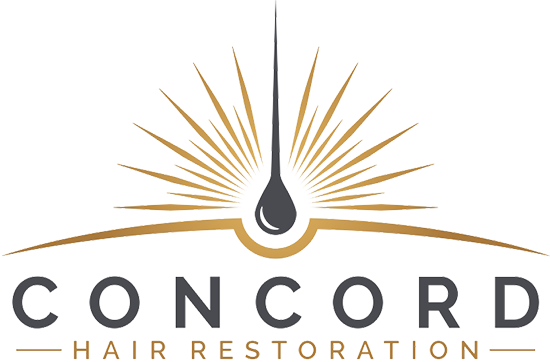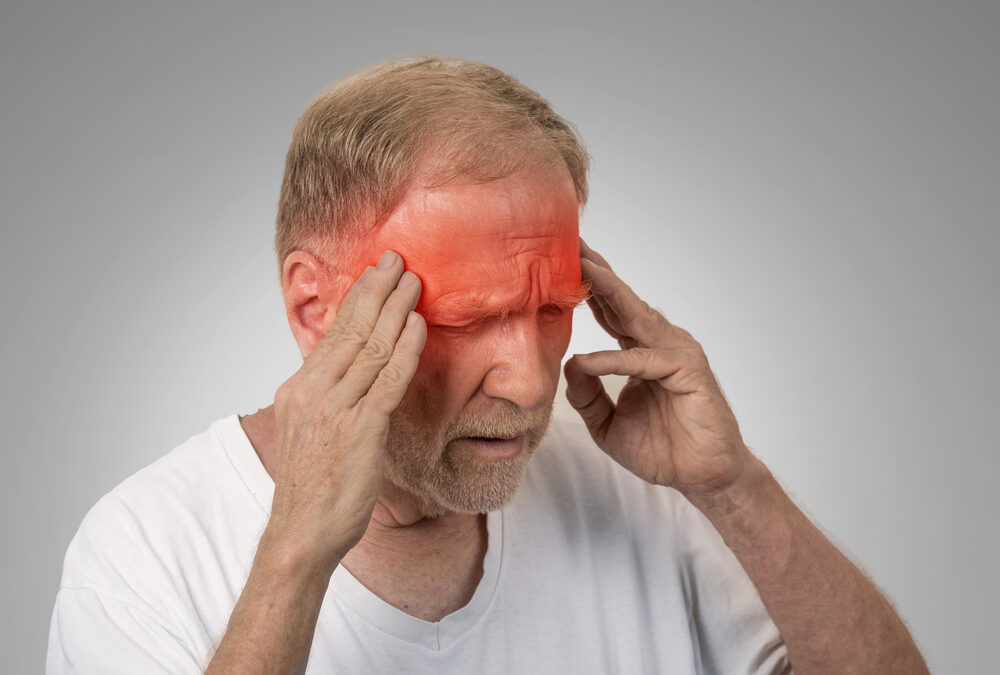Headaches and Hair Loss: Is There a Connection?
Hair loss is often attributed to genetics, but other causes like infections, medications, and various alopecia types are well-documented. These factors are at the forefront when diagnosing hair loss and determining treatment options. However, a recent article in the National Library of Medicine suggests headaches might be another culprit.
The Hair Loss and Headache Connection
Surprisingly, headaches, specifically certain types of cephalgia, can contribute to hair loss or worsen existing hair loss patterns. Dr. Kate O Bedrin and Dr. Carrie Dougherty from Georgetown University Hospital Neurology Department published their findings on reported cases of “headache hair loss” or cephalgia alopecia, including the initial case report from 2006. Their study aimed to review the clinical description, causes, diagnosis, and treatment options for this condition.
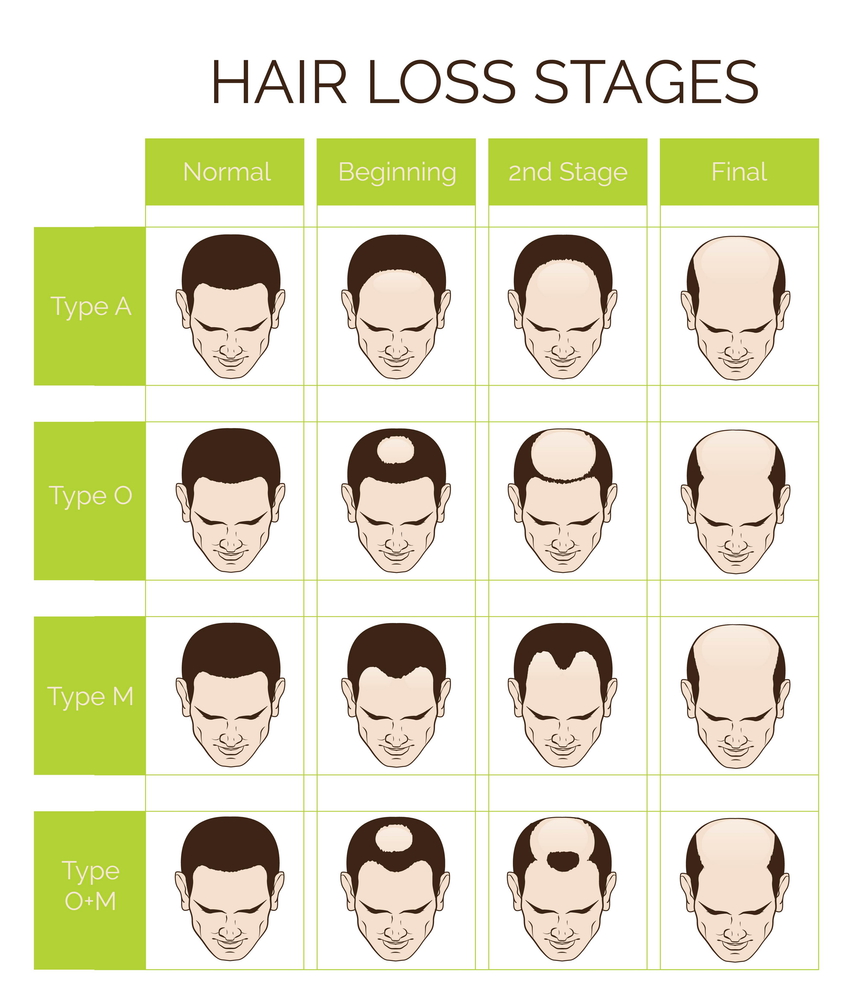
Recent Findings on Headaches and Hair Loss
Nerve Regulation and Hair Loss:
Drs. Bedrin and Dougherty suggest the cause of hair loss in cephalgia alopecia might be related to how the skin and nerves are regulated. They propose that a recurrent activation of trigeminal and upper cervical nerves, which innervate the hair follicles, could be triggered by headaches. This repetitive activation might deplete substance P and calcitonin gene-related peptide (CGRP), essential for hair growth promotion and immune system regulation, ultimately leading to hair loss.
Headache-Hair Loss Spectrum:
One case study suggests cephalgia alopecia and nummular headaches with trophic changes might be part of a spectrum of conditions involving head pain and skin changes. Typically, cephalgia alopecia presents as recurrent burning, stabbing head and neck pain, followed by hair loss in the corresponding area.
Treatment and Ongoing Research:
OnabotulinumtoxinA (onabotA) injections are the mainstay treatment for both pain and hair loss associated with cephalgia alopecia. Diagnosis is based on the patient’s clinical history and response to onabotA treatment. Further research is needed to explore the proposed continuum between head pain and skin changes, assess the effectiveness of the grid-like onabotA technique used for nummular headaches in treating cephalgia alopecia, and solidify the proposed pathophysiology.
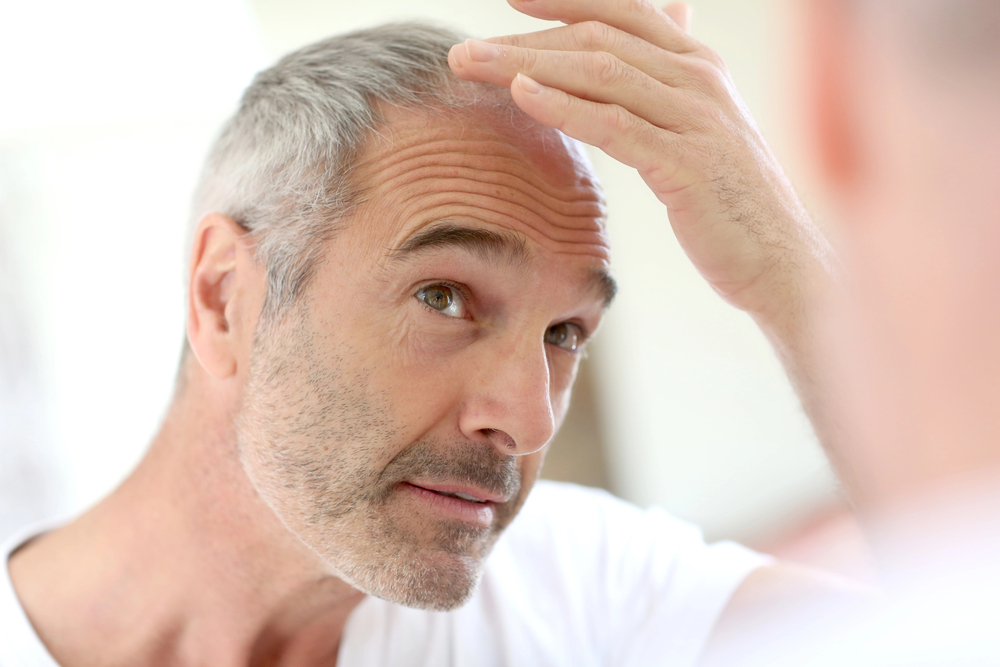
Who to See for Hair Loss and Headaches
In the past, the link between headaches and hair loss might have been dismissed. However, these findings suggest a potential connection between head pain and new-onset hair loss. Because cephalgia alopecia and nummular headaches with trophic changes might represent a spectrum of conditions involving head pain and skin changes, consulting a neurologist to discuss new-onset hair loss is advisable.
As mentioned earlier, numerous factors can cause hair loss. A board-certified doctor experienced in scalp examination and hair loss diagnosis is ideal for a consultation. This doctor will examine the scalp to determine the cause of hair loss and recommend the best course of treatment to address it. A neurologist can help manage the headaches, while the hair loss doctor can provide a hair restoration plan if necessary.
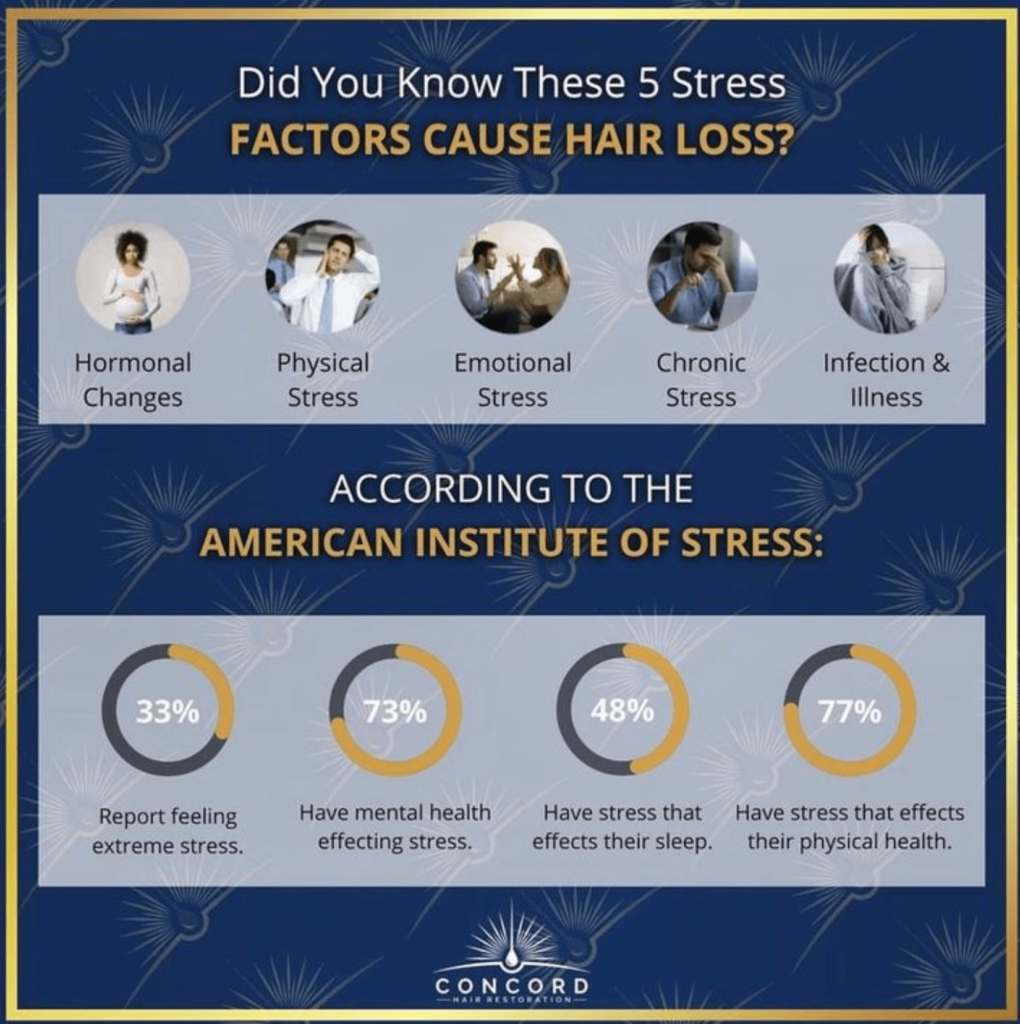
Understanding Headaches and Hair Loss
Headaches
Headaches are characterized by pain or discomfort in the head, scalp, or neck. They vary in intensity and duration, ranging from mild and occasional to severe and chronic. Common types include tension headaches, migraines, cluster headaches, and sinus headaches.
Hair Loss (Alopecia)
Hair loss refers to the partial or complete loss of hair from the scalp or other body parts. It can occur suddenly or gradually and may be temporary or permanent. Common types include male-pattern baldness, female-pattern baldness, alopecia areata, and telogen effluvium.
Common Causes of Headaches and Hair Loss
Stress, hormonal imbalances, medical conditions, lifestyle choices, and genetics can trigger both headaches and hair loss. Identifying the underlying causes is crucial for effective management and treatment.
The Link Between Headaches and Hair Loss
Shared Underlying Factors
Research suggests that certain factors might contribute to both headaches and hair loss. These include:
- Hormonal imbalances
- Inflammation
- Immune system dysfunction
- Genetic susceptibility
Addressing these common factors could help alleviate symptoms of both conditions.
Impact of Stress
Chronic stress is a well-known trigger for both headaches and hair loss. It disrupts hormonal balance, increases inflammation, and weakens the immune system, leading to various health issues, including tension headaches and telogen effluvium. Implementing stress management techniques can be beneficial for reducing symptoms and promoting overall well-being.
Medical Conditions Associated with Both Headaches and Hair Loss
- Hormonal imbalances: Hormonal imbalances such as thyroid dysfunction, menopause, and polycystic ovary syndrome (PCOS) are commonly linked to both headaches and hair loss. Fluctuations in hormone levels can affect blood flow, neurotransmitter activity, and hair follicle function, contributing to symptoms of both conditions.
- Thyroid disorders: Thyroid disorders like hypothyroidism and hyperthyroidism can cause headaches.
- Autoimmune diseases: Certain autoimmune diseases, such as lupus and alopecia areata, can affect both the nervous system and the hair follicles, leading to headaches and hair loss. Autoimmune conditions involve the immune system mistakenly attacking healthy cells and tissues, resulting in inflammation and tissue damage.
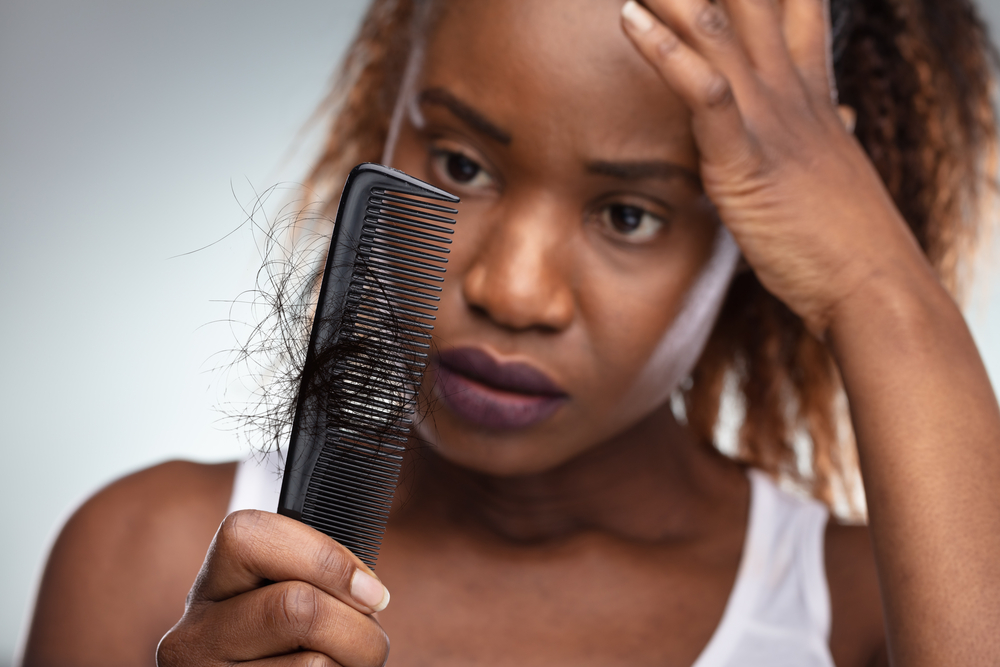
Lifestyle Factors and Their Influence
- Diet and nutrition: Poor diet and nutritional deficiencies can contribute to both headaches and hair loss. Consuming a balanced diet rich in vitamins, minerals, and antioxidants is essential for supporting overall health and minimizing symptoms of both conditions. Nutrients like vitamin D, B vitamins, zinc, and omega-3 fatty acids are particularly important for hair growth and scalp health.
- Sleep patterns: Inadequate sleep or disrupted sleep patterns can exacerbate symptoms of both headaches and hair loss. Sleep deprivation can increase stress levels, disrupt hormone regulation, and impair immune function, making individuals more susceptible to headaches and hair thinning. Establishing a consistent sleep routine and prioritizing quality sleep can help improve symptoms and promote hair regrowth.
- Exercise habits: Regular physical activity has been shown to have numerous health benefits, including stress reduction, improved circulation, and enhanced mood. Engaging in moderate exercise can help alleviate symptoms of headaches and promote hair growth by reducing tension, increasing blood flow to the scalp, and balancing hormone levels.
Managing Headaches and Hair Loss Together
- Holistic approaches: Taking a holistic approach to managing headaches and hair loss involves addressing underlying imbalances and promoting overall well-being. This may include incorporating stress management techniques, adopting a healthy lifestyle, and exploring alternative therapies such as acupuncture, yoga, and meditation.
- Medical treatments: In some cases, medical intervention may be necessary to effectively manage symptoms of both headaches and hair loss. This may involve prescription medications, over-the-counter pain relievers, hormone therapy, or hair restoration treatments. Consulting a healthcare provider can help determine the most appropriate treatment options based on individual needs and preferences.
Preventive Measures
- Stress management techniques: Implementing stress management techniques can help reduce the frequency and severity of headaches, as well as minimize hair loss. Techniques such as deep breathing exercises, progressive muscle relaxation, and mindfulness meditation can promote relaxation, reduce muscle tension, and improve coping skills.
- Healthy lifestyle choices: Making healthy lifestyle choices, such as maintaining a balanced diet, getting regular exercise, and prioritizing sleep, is essential for preventing headaches and supporting hair health. Avoiding triggers such as caffeine, alcohol, and processed foods can also help minimize symptoms and promote overall well-being.
- Seeking professional help: Consulting a healthcare provider if you’re experiencing persistent or severe headaches and hair loss is important. They can conduct a thorough evaluation, perform diagnostic tests, and recommend appropriate treatment options to address your specific needs.

The Future of Research and Developments
- Emerging treatments: Ongoing research is continuously uncovering new insights into the underlying mechanisms of headaches and hair loss, paving the way for innovative treatments and interventions. From novel medications to advanced surgical techniques and regenerative therapies, the future holds promise for improved outcomes and enhanced quality of life for those affected by these conditions.
- Scientific advancements: Advancements in technology and scientific understanding are driving progress in the field of headache and hair loss research. From genetic studies to neuroimaging techniques and biomarker discovery, cutting-edge tools and methodologies are expanding our knowledge and opening new avenues for targeted therapies and personalized medicine approaches.
The link between headaches and hair loss is a growing area of research. Shared underlying factors, such as hormonal imbalances, stress, and autoimmune conditions, can contribute to both conditions simultaneously. By addressing these factors holistically and implementing preventive measures, individuals can effectively manage symptoms and improve their quality of life. Seeking professional help, staying informed, and building a strong support system are essential steps towards achieving optimal health and well-being.
Frequently Asked Questions
What are some scalp conditions that might mimic cephalgia alopecia?
Certain scalp conditions, such as scarring alopecia or alopecia areata, can present with hair loss patterns that resemble cephalgia alopecia. A dermatologist can help differentiate between these conditions through a scalp examination and potentially a scalp biopsy.
Are there any risks associated with onabotA (Botox) injections for cephalgia alopecia?
As with any medical treatment, onabotA injections carry potential side effects. These can include temporary injection site pain, bruising, weakness in nearby muscles, and headache. Consulting a healthcare professional experienced in onabotA injections for headaches can help minimize these risks.
Remember, this article provides general information and is not a substitute for professional medical advice. Always consult a healthcare provider for diagnosis and treatment recommendations.
Suffering from both headaches and hair loss? You’re not alone.
This article explored the potential link between these conditions and how a holistic approach can improve your well-being. However, for a definitive diagnosis and personalized treatment plan tailored to your unique needs, a consultation with a hair loss expert is key.
At Concord Hair Restoration, Dr. Ben Mousavi combines traditional and modern medicine with a focus on the whole patient. Dr. Mousavi doesn’t believe in a one-size-fits-all approach, and will consider your specific situation – symptoms, genetics, and lifestyle – to craft the most effective treatment plan for achieving your hair restoration goals. Schedule your free consultation today and take the first step towards a healthier, happier you!
Contact Concord Hair Restoration in San Diego at (619) 905-4247 or Los Angeles at (818) 800-2002.
